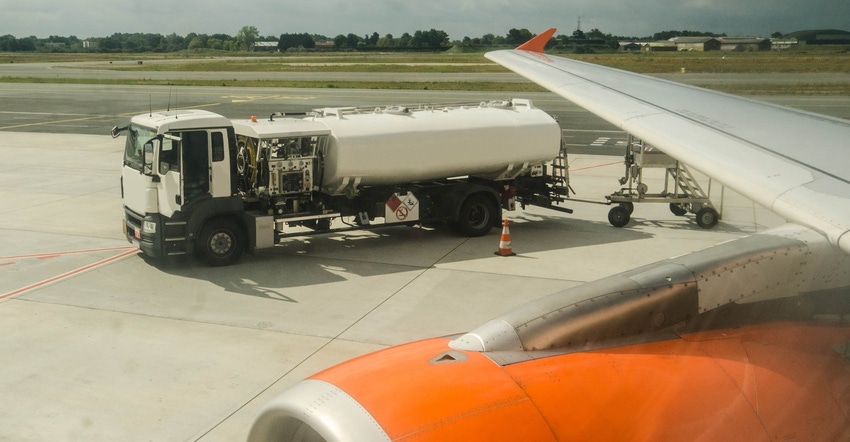New legislation should allow a DOE-led life cycle analysis utilizing USDA expertise on agriculture feedstocks

As the Senate and House of Representatives consider new legislation to establish a tax credit for sustainable aviation fuel – or SAF – this year, biofuel and ag industry groups sent a letter to the U.S. Senate Committee on Finance and the U.S. House of Representatives Committee on Ways and Means outlining its recommendations for the SAF tax credit.
In an effort to decarbonize transportation and reduce aviation emissions, Congress is considering new legislation to establish a tax credit to promote and develop robust domestic SAF production. To be successful, the ag and biofuels coalition notes in their letter, the tax credit must be based on accurate carbon accounting in life cycle analysis led by the U.S. Department of Energy.
The letter was signed by Growth Energy, American Farm Bureau Federation, National Biodiesel Board, National Corn Growers Association, National Farmers Union and the Renewable Fuels Association.
“Numerous members of our respective organizations are poised to produce SAF or sustainable feedstocks for SAF. Many others are looking to work toward participation in the full value chain in the relatively near future,” the groups write. “We recognize the importance of decarbonizing the aviation sector with low carbon liquid fuels. Because biomass feedstocks are essential SAF sources, it is imperative that the tax credit properly account for the lifecycle emissions of these sources and the petroleum products these new fuels will replace.”
The groups urged legislators to make the U.S. Department of Energy the lead agency in establishing a regularly updated LCA for any SAF credit. “Across our federal government, DOE has the best resources, expertise, and current ability to assess lifecycle emissions fairly and scientifically,” they write.
Unfortunately, current legislation relies heavily on LCA modeling from the International Civil Aviation Organization. The letter pointed out that carbon intensity estimates under the ICAO for some SAF sources are “wildly inaccurate and incorrectly penalized” and cannot be supported.
Unlike the DOE, the Environmental Protection Agency does not maintain a regularly updated LCA model or methodology for biofuels. Notably EPA’s most recent comprehensive analysis for biofuels was conducted in 2009. “EPA’s analysis does not reflect or capture the continuous improvement that has been witnessed over the past decade in biomass production or the technology and efficiency improvements in fuel production,” the groups note.
They continue, “As climate-smart agriculture practices continue to improve and expand and as new fuel production technologies for SAF are developed and scaled to market, a regularly-updated LCA is essential to the success of a SAF tax credit and its ability to incentivize new fuels and reduce emissions.”
In addition, the life cycle analysis for petroleum jet fuels must also be based on the most recent and accurate data to ensure a fair comparison is made between fuels, they suggest. To ensure clarity, they recommend that Congress designate a baseline carbon intensity value for fossil jet fuel.
“In summary, our recommendation for a sound, sustainable and effective SAF tax credit is to ensure the legislation allows a DOE-led LCA, unencumbered by ICAO, utilizing USDA expertise on agriculture feedstocks,” the groups conclude. “Furthermore, a date-certain, near-term transition to this DOE-led LCA methodology must be an integral part of any SAF tax credit legislation. Finally, we urge that you consider establishing or directing a clear baseline emissions value for petroleum-based aviation fuel, informed by the most recent science and data.”
About the Author(s)
You May Also Like




.png?width=300&auto=webp&quality=80&disable=upscale)
